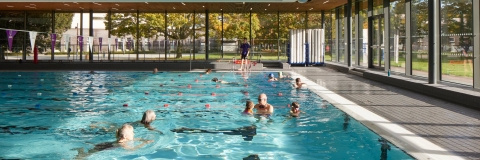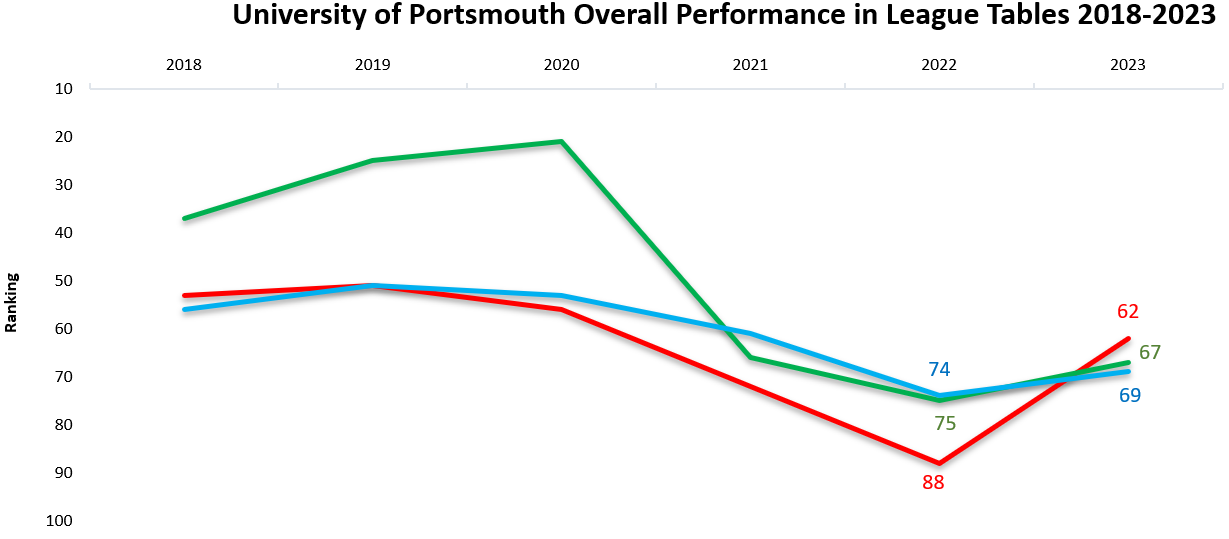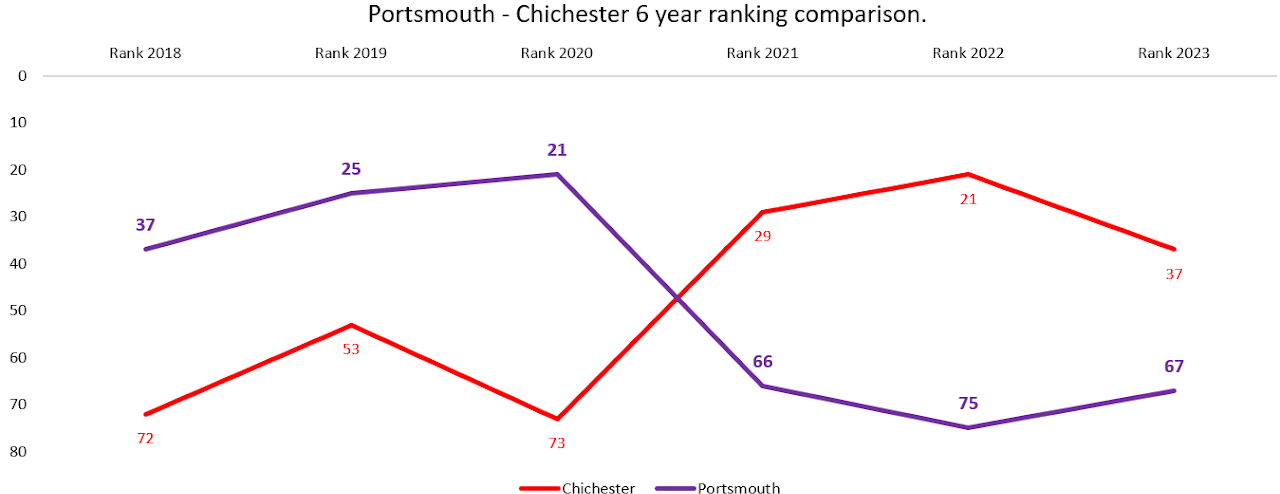
Vice-Chancellor Introduction
It’s the start of a new academic year, and there is a distinct feeling of excitement and energy on campus with the arrival of thousands of students embracing new opportunities, new ideas and new friendships. There is a strong body of evidence that tells us that feeling a “sense of belonging” is an important contributor to student retention and success at university, with welcome and induction activities being a very important first step. I’m grateful to colleagues in DSAA, the Faculties and Marketing who at short notice reorganised, republished and republicised over 600 induction events and activities which had been planned to take place last Monday but were rearranged due to Her Majesty the Queen’s funeral and the UK bank holiday. It was quite an undertaking, but the feedback has largely been positive from students who understood why the change needed to be made. I’d also like to thank staff in the Library, ResLife and the Sports Centre who ensured that support and facilities were available to students on Monday.
Looking ahead, the Bulletin will initially focus on our four strategic imperatives with an update on student recruitment, and a rise in our league table positions which reflects improvements in our other three strategic imperatives of student experience, graduate employment and research and innovation. While league tables should never be thought of as the sole validation of our work, we cannot escape the fact that they influence how others perceive us and are widely used by students and their parents as a tool to choose their place of study.
There is also good news with the popularity of our new Ravelin Sports Centre which opened earlier this month, a multi-million pound contract with the Ministry of Justice, and a higher number of mid-career academics aiming to advance their careers to become Readers.
I hope you feel re-energised by our students and that you’re looking forward to the next 12 months as much as I am.
I also encourage you to join the Staff community briefing and Q&A next month, where I look forward to welcoming all staff to join me online to hear the latest University updates and have a chance to ask myself and fellow senior leaders any questions you may have. This will take place at 11am on Tuesday 25 October. An all staff calendar invite will follow shortly.
Taking action to improve student recruitment
Although the new academic year is only just getting underway, and we do not yet know our final recruitment position, it is apparent that UK student recruitment has fallen some way short of targets and international recruitment is expected to recruit above expected numbers buoyed by very strong postgraduate taught demand.
The current undergraduate home market opportunity is significant. By 2030, the number of 18-year-old school leavers in England will grow by 27%. The entry-rate to higher education for this group hit an all time high (44%) in June 2022 and is on a trajectory to rise further. This will create a demand for UK Higher Education that will rise at an unprecedented rate, surpassing 1 million applicants in 2027.
Our vision is to be the top modern university in the UK and one of the top 100 young universities in the world by 2030 and the current recruitment position re-emphasises the need to reverse the ongoing decline in our UK full-time application numbers
In our commitment to this vision, the University has recently undertaken an external review to establish the current position, perception, experience and relative performance of the University and its offer, portfolio, marketing and recruitment strategies to develop recommendations to improve future applications.
Referred to as the ‘Sales Funnel Review’ the report has identified six priority areas for change along with 51 prioritised actions. These priority areas include our recruitment strategy, portfolio, tariff and brand. We need to ensure we have an attractive, high-quality portfolio of courses, which offer an excellent student experience and provide our students with the skills to progress to graduate level employment. We also need to diversify our student recruitment in other areas by introducing new more flexible courses that enable students to ‘earn and learn’. A key recommendation is for us to strengthen our brand advertising and ensure that the applicant experience is fully optimised.
The report has now been shared with UEB and in October, the Senior Leadership Team will be meeting to discuss the recommendations in greater detail so we can take forward with all teams the opportunities to deliver the change we need to achieve our strategic imperatives and the 2025 strategy. There will be a further update on the key recommendations and actions underway, completed and in planning, in my October bulletin.
On Saturday, The Guardian University Guide 2023 was published reporting a 8 point rise in their League table to 67th place.
This follows a rise in the Times and Sunday Times Good University Guide earlier this month which saw the University rise 50 places for student satisfaction, which contributed heavily to the University’s 26-place rise to 62nd in the overall table.
The uplift in our positions is largely driven by our improved results seen earlier this year in the National Student Survey (NSS), the Graduate Outcomes survey and the Research and Excellence Framework (REF). These are key measures in three out of four of our strategic imperatives, which reinforces that we are focusing on the right things.
Taken over a longer period of time, this graph shows we are heading in the right direction to where we were pre-pandemic.
While the league tables focus on undergraduates, we have also seen improvements in student satisfaction among our postgraduates. In July I shared that the Postgraduate Taught Experience Survey (PTES) 2022 reported us to have an overall satisfaction level of 86%, above the sector average of 82%. Importantly this puts us into the top quartile in this area, ranked 14th across the sector for overall satisfaction.
Since July, we have analysed this survey further and found that with the exception of resources, Portsmouth exceeded the sector average for all areas with significantly higher satisfaction for assessment, dissertation, organisation, skills development and overall satisfaction.
We have some way to travel to realise our ambitions to be the top modern university in the UK and in the top 100 young universities in the world by 2030 - but we are back on track thanks to the collective hard work of teams across the University.


Recognition for our knowledge exchange
Knowledge exchange is becoming increasingly important for universities, as our sector introduces and strengthens systemic processes to ensure research and innovation activities maximise their benefit to society, our economy and the planet.
In 2021 Research England published its first Knowledge Exchange Framework (KEF) report, to support universities in better understanding and improving their own performance in knowledge exchange and to support organisations in accessing world-class knowledge and expertise within higher education.
This week Research England has published its 2nd report and I am pleased to share that the University has improved and continues to demonstrate strong performance of knowledge exchange across all the criteria.
We are in the top 20% of all universities in England for our Continuing Professional Development (CPD) and Graduate Start-Up activities. Programmes such as our Enterprise Education are being recognised for supporting our students with their entrepreneurial aims.
Research England placed us in Cluster E, which compares us with ‘Large universities with a broad discipline portfolio across both STEM and non-STEM generating excellent research across all disciplines.’ The report found us to exceed the cluster average in over half the perspectives, which is a recognition of collaborative projects such as the Respect the Water campaign and The Forensic Innovation Partnership and our excellent performance in delivering Knowledge Transfer Partnerships such as our relationship with Entec International.
Thank you to all the team members involved in this important work.
Success for our Ravelin Sports Centre
It’s been wonderful to see large numbers of people using and enjoying our new Ravelin Sports Centre and it’s quickly become a busy hub on campus. Since its opening to students, staff and current community members on 3 September, there have been over 22,000 visits for health and sport activities, with over 3,000 attending for our inaugural sports fayre. The feedback from our customers has been fantastic and everyone is blown away by the quality and scale of the building and how friendly and accommodating our spaces and team are. We now look forward to welcoming many thousands over the next few weeks, including new community members who can join from 1 October.
Welcoming a Ministry of Justice contract
More than half of Trainee Probation Officers in England and Wales will receive their professional education from the University, after the Ministry of Justice awarded a new three-year multi-million pound contract. The School of Criminology, and Criminal Justice has been tasked with providing the academic course for the teaching of the Professional Qualification in Probation (PQiP) which has been a statutory requirement for probation officers since 2016.
More than 2,000 Trainee Probation Officers in the East England, West Midlands, London, Southern Central, South West and Wales regions are expected to participate in the remote learning programme during the contract. Colleagues have been working closely with the Ministry of Justice to deliver education for probation officers for the last 20 years. The new contract further opens up access routes for non-graduates and introduces study routes for part-time staff to enable the modernisation of the Ministry’s workforce.
Academic to Reader Cohorts
I was pleased to learn that 74 colleagues applied to form part of the first Mid-Career Academic to Reader cohort training programme, and delighted that Research and Innovation Services (RIS) have redesigned and reallocated funding so that we can now support the running of two cohorts - as opposed to the one originally planned. If you have been unsuccessful this year, can I encourage you to apply next year.
This cohort training programme complements the Early Career Researcher to Mid-Career Academic programme (now in its second year, and also oversubscribed), and the Reader to Research Leader programme (now in its third year). A personal thanks to Lisa Rhodes and her team in RIS who developed the programmes, the programme coordinators Val Anderson and Nigel Willams (Faculty of Business and Law) and Jane Creaton [Faculty of Humanities and Social Sciences) and to all those who contribute sessions to ensure the programmes are so successful.